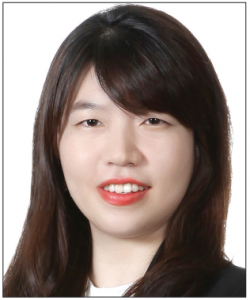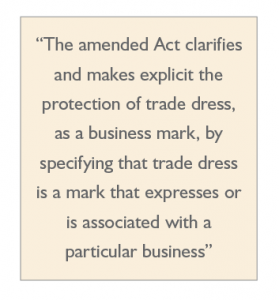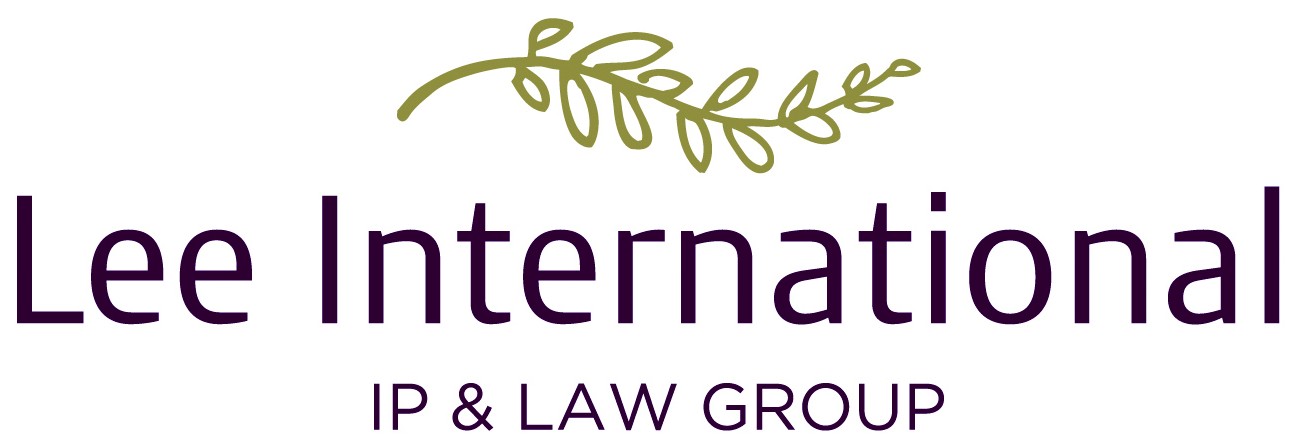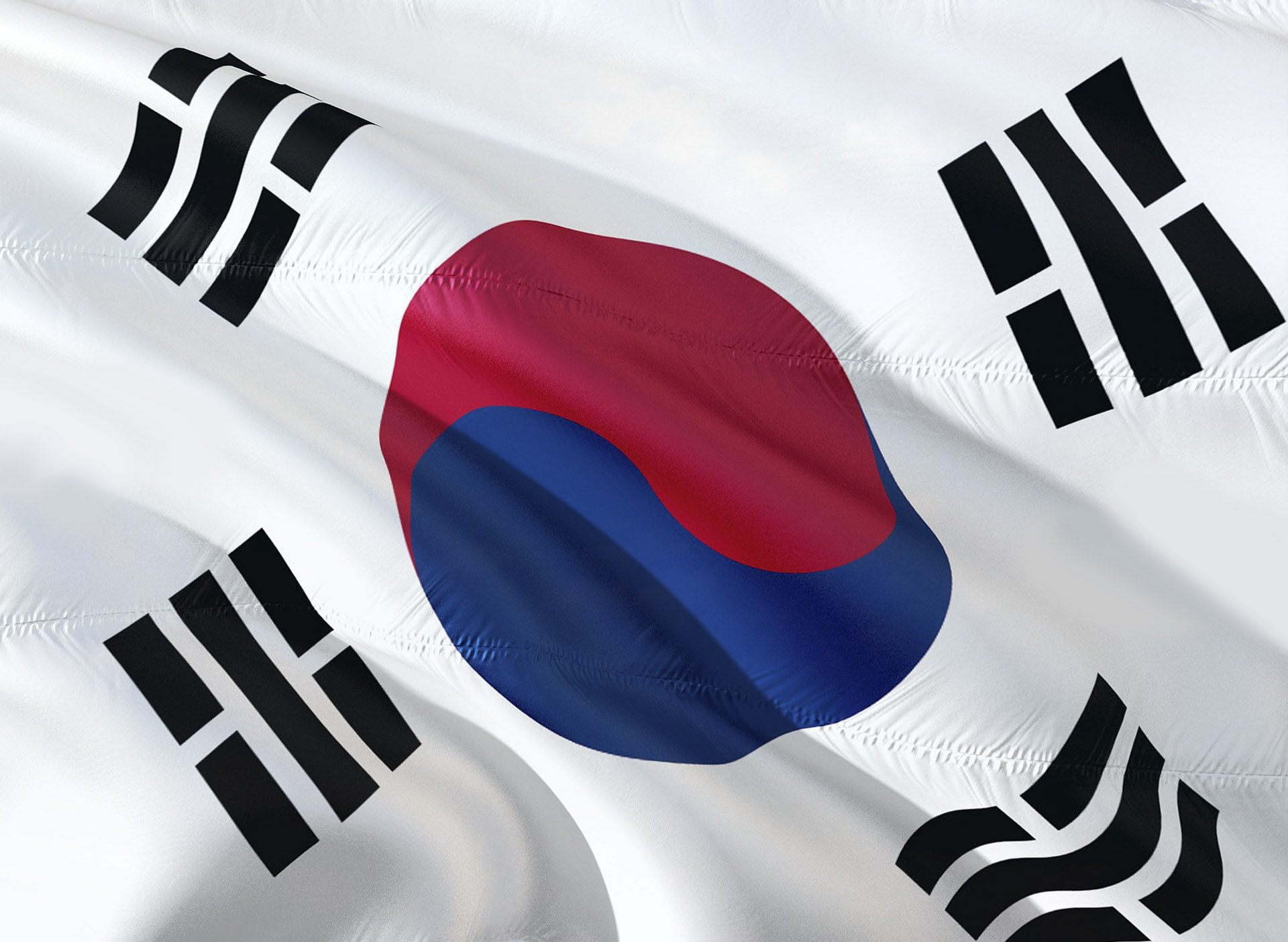 By Lee Hye-Ri, Lee International
By Lee Hye-Ri, Lee International
Following its amendment on April 17, 2018, the new provisions of the Unfair Competition Prevention and Trade Secrets Protection Act took effect on July 18, 2018. There had been no established opinion in Korea as to the law under which “trade dress” should be protected and what requirements should be met in order to receive such protection. However, this amendment to the Act explicitly recognises the concept of trade dress as well as the protection of ideas. It is expected to further strengthen the level of protection available in Korea to the rights of IP owners.
In its previous version, the Act did not have any provision that explicitly protected trade dress, a term that, among other things, refers to a distinctive general exterior appearance and design of a business that is associated with a particular business and constitutes such features as business methods, interior decorations, signboards, signposts, etc. In the absence of such a provision, courts protected trade dress by recognising it as one of the features protected under Article 2(1)j. of the previous Act, but only if it met certain requirements (Supreme Court decision no. 2016Da229058 rendered on September 21, 2016, etc.)
The amended Act, on the other hand, clarifies and makes explicit the protection of trade dress, as a business mark, by specifying that trade dress is a mark that expresses or is associated with a particular business, and it includes any distinctive method of selling products or providing services or any general exteriors of places of business, signage, external designs, internal decorations, etc. This is reflected in Article 2(1)b. and c. of the Act.
Additionally, in its prior version, the Act did not have any concrete provision that would restrict the unauthorised use of ideas, except in limited situations where certain defined requirements were met, for example, where a right was protected by a patent registration or where there was an explicit contract protecting such use of ideas.
 To more aggressively protect novel business and technical ideas and restrict the unauthorised use of those ideas, particularly the ideas of small and medium-sized business enterprises (SMEs), venture corporations and developers, the amended Act contains new protective measures. It provides that any act of wrongfully using or causing others to use information that includes technical or business ideas of others, which information could possess economic value, in the course of bargaining or transacting business proposals, bidding, public offerings, etc., would be considered a new type of unfair competition under Article 2(1)j. of the Act. The only exceptions would be situations where the recipient of such business ideas was already aware of those ideas at the time they were received or when it is proved that such ideas were already widely-known in the same field of business or industry.
To more aggressively protect novel business and technical ideas and restrict the unauthorised use of those ideas, particularly the ideas of small and medium-sized business enterprises (SMEs), venture corporations and developers, the amended Act contains new protective measures. It provides that any act of wrongfully using or causing others to use information that includes technical or business ideas of others, which information could possess economic value, in the course of bargaining or transacting business proposals, bidding, public offerings, etc., would be considered a new type of unfair competition under Article 2(1)j. of the Act. The only exceptions would be situations where the recipient of such business ideas was already aware of those ideas at the time they were received or when it is proved that such ideas were already widely-known in the same field of business or industry.
Given the above amendment, the unauthorised use of business and technical ideas, which had previously fallen into a gap in the law in the absence of an explicit contract of protection between the parties, is now the subject of protection, even without concrete contract provisions.
Also of note, the amended Act specifically excludes the wrongful use of ideas from criminal punishment (Article 18(3)1 of the Act). But it grants the commissioner of the Korean Intellectual Property Office authority to conduct investigations and to make correction recommendations in connection with any conduct violating the Act (Articles 7 and 8 of the Act).
Moreover, the amended Act generally provides for (i) civil claims to prohibit violations and for the recovery of damages (Articles 4 and 5 of the Act); (ii) criminal sanctions (Article 18(3) of the Act); and (iii) administrative remedies (Articles 7 and 8), as the available methods of relief for engaging in unfair competition. Additionally, Article 14-7 was newly added so that in the case of any damages lawsuit filed pursuant to Article 5 of the amended Act, the court may, if necessary, demand that the Korean Intellectual Property Office (KIPO) submit to the court the KIPO’s investigation records as to any applicable acts of unfair competition, etc. It is expected that this addition will make it easier to acquire evidence to support damages law suits in the future.

T: 82 2 2262 6288
F: 82 2 2279 5020


